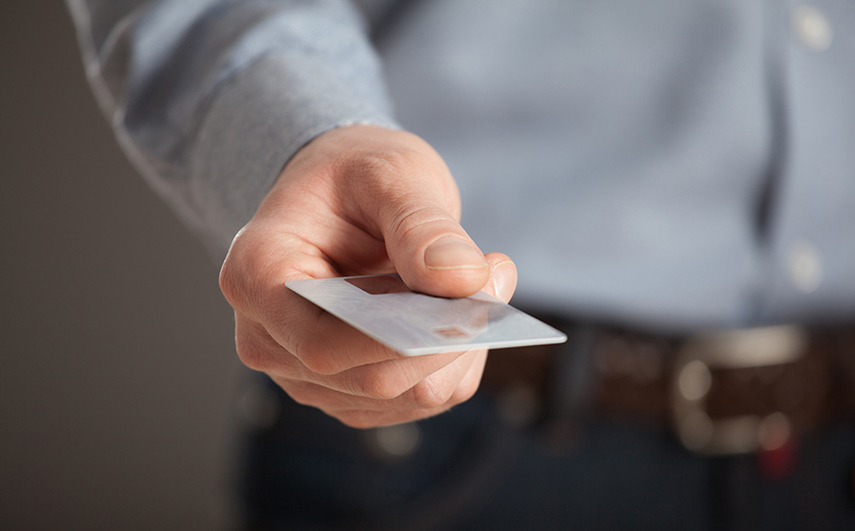Common opinion suggests that getting a credit card is a good way to raise our credit score. Of course, this assumes we use it properly by repaying loans on time. On the other hand, it may surprise you that your credit score can sometimes take a dip after getting a credit card.
If you are getting a credit card, lenders can get suspicious, because it may seem like you are having financial difficulties and need more money. That means you are less creditworthy, therefore your credit score drops. So, a few things happen after you get a credit card that shows to the lenders that you are risky to lend money.
First of all, your credit score is a numerical expression that helps lenders decide whether you are a reliable individual to lend money to. Reasons for decreased credit score differ from case to case, but there are a few universal factors that determine your credit score. Getting a credit card can affect some of them and therefore lower your score.

Making a New Hard Inquiry
Every time you apply for a credit card, there is a hard inquiry shown on your credit report. This is a way for lenders to gather all of the information about your credit report so they could check if they should allow you that application. There are two kinds of inquiries: soft and hard inquiry, also known as a soft and hard pull.
A soft inquiry, or soft pull, is usually referring to inquiries you made while checking on your credit. It can also refer to inquiries your employer made checking your credit as a part of the hiring process. The good thing about soft inquiries is that they won’t appear on your credit report, so they can not affect your credit score.
On the other hand, hard inquiries, or hard pull, can do that. Hard inquiries show on your credit report every time you apply for any kind of credit, such as a loan for an automobile, mortgage, or a new credit card. Every case is different, but usually, a hard inquiry lowers your credit score by about one to five points.
Having a few hard inquiries is not the greatest thing while you are trying to make a higher credit score. But, a few points lower is not such a scary thing given that most lenders won’t look at the exact number while evaluating your application. Your credit score will be put into some range, say 600-650, so a drop from 630 to 625 won’t be such a bad thing.
Also, a drop because of the hard inquiry is a temporary thing. It can stay on your report for up to two years, but it also tends to fade over time.
So, if you notice an increase of a few points on your credit score a few months after getting a credit card, and you don’t know what caused that increase, it is probably because of that hard inquiry fading.
Making Higher Balances
Also, getting a credit card can lead to high credit utilization. If after getting a credit card you instantly made a big purchase, or you got a balance-transfer card for transferring your highest-interest debt, you’ve got a heavily weighted card limit. Your credit utilization is calculated in two ways: overall and per card.
Also, there is a common expert opinion that you shouldn’t go higher than 30% per card. The lower your credit utilization, the higher your credit score. You should know that every use of new credit is getting you closer to your credit limit. Therefore, you may notice a drop in your credit score.
On the other hand, opening a new credit card, if you use it properly, can increase your credit limit. Supposing that your spending stays the same over time, calculating your credit utilization overall, will make it lower because you will have more room on your credit cards. Eventually, it can make your credit score higher.
Lowering Credit History Length
The length of your credit history is also one of the main factors that can affect your credit score. Although this factor is not as important as other factors, it still counts as 15% of your FICO score, or 21% of the other credit score provider, VantageScore. Getting a new credit card can lower the average age of accounts.
This part of your credit score consists of an account you have the longest, that is your oldest account, and an average of all the accounts you have. The oldest your accounts are, the higher score you get. Therefore, if you recently opened a new credit card, your score might decrease a bit due to the decline in the average age of accounts on your credit.
If you have many credit cards, this will have a lower impact on the credit history length factor. The fewer credit cards you have, the impact gets bigger. Also, the average age of accounts will get improved over time, so as making a hard inquiry, it is not such a bad thing that can happen to your lending odds.
The Bottom Line
The good news is, if your credit score dropped after getting a credit card, it is fixable. All those decreases your new credit card made to your credit score can fade over time. Additionally, with your new credit card, you can make new positive payment history, which is the most important factor for your score.
It all comes down to this: as long as you pay your debts on time after getting a credit card, the only thing you can notice about your credit score is an increase.
If you need tradelines to boost your score, visit tradelinenetwork.com
